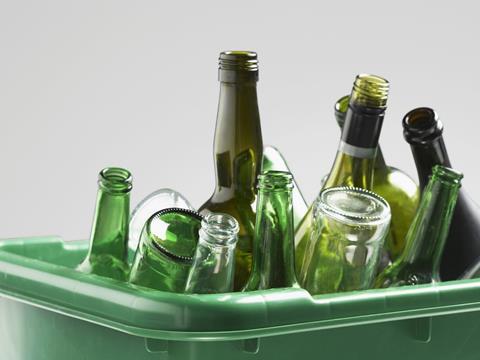
O-I Brazil has launched a new partnership, Recycle and Make A Goal, to increase glass recycling around soccer games – aiming to reduce waste and lower emissions in the glass manufacturing process.
O-I Brazil teamed up with São Paulo’s Municipal Department of Urban Cleaning, the startup Grupo Seiva, and the “Queen of Recycling” Work Cooperative to collect over 8,000 glass bottles for recycling.
The Recycle and Make a Goal project kicked off in São Paulo around the Morumbi Stadium during the January game between São Paulo FC and Santo André, which marked the opening of the São Paulo Football Championship. O-I operates glass manufacturing plants in São Paulo (SP), Rio de Janeiro (RJ), Recife (PE), and Vitória de Santo Antão (PE).
“This is the second initiative of a project focused on cullet [recycled glass] collection around the Morumbi Stadium,” said O-I Brazil’s manager of circular economy, Alexandre Macário. “Despite the heavy rain during the event, we managed to gather more than a ton of glass packaging. We are working to make this project permanent in São Paulo’s stadiums.”
Macário said future plans include implementing the project in cities where O-I factories are located, which will help facilitate project logistics.
The Seiva Group installed crushing machines at four different collection points near Morumbi Stadium to facilitate easy disposal of glass packaging. Fans were encouraged to deposit their glass at the available collection points, and the Queen of Recycling team helped gather materials. All the cullet has been sent to O-I to be manufactured into new glass packaging.
O-I says using recycled glass to create new glass containers means the manufacturing process requires less energy and creates fewer emissions. It adds that for every one ton of recycled glass used in the manufacturing process, more than one ton of raw materials is saved; and for every 10% of recycled glass used in the manufacturing process, energy consumption is reduced by about 3% and carbon emissions by 5%.
Among O-I’s corporate sustainability goals is incorporating an average of 50% recycled glass in its packages globally by 2030.
Teresa Eloá de Souza Martins of São Paulo’s Recycling Cooperative said the Municipal Cleaning Department’s support has been essential in sending all collected waste to the correct destination and preventing it from reaching landfills.
Sidinei Couto Jr., sub-mayor of Butantã, commented: “We hope this operation will be permanent and bring tangible benefits, such as reducing environmental impact, promoting recycling, and improving local safety. The successful implementation of this operation will have immediate positive results and contribute to a more sustainable and secure future for the region.”
In other news, Redsmith Distillery released gin bottles made from 100% recycled glass last year. Reportedly 20% lighter than the previous bottles, the new packs apparently use less energy to manufacture, handle and ship, and each bottle has a natural cork stopper with a wooden top, sealed with a recyclable shrink closure.
In light of Hungary’s new deposit return scheme, Petainer and Oonly have released their first refillable PET bottle for mineral water on the Hungarian market in hopes of driving circularity in the country’s beverage sector. Its light weight is thought to enable ‘vigorous’ washing between cycles, and the companies say the bottle can achieve the equivalent workload of around 25 bottles in its lifespan of roughly 25 cycles.
If you liked this story, you might also enjoy:
The Brief: How viable is biorecycling for plastics?
Report: How the top brands are progressing on packaging sustainability
The Brief: Using ocean-bound plastic in packaging – how, why and should we?














No comments yet